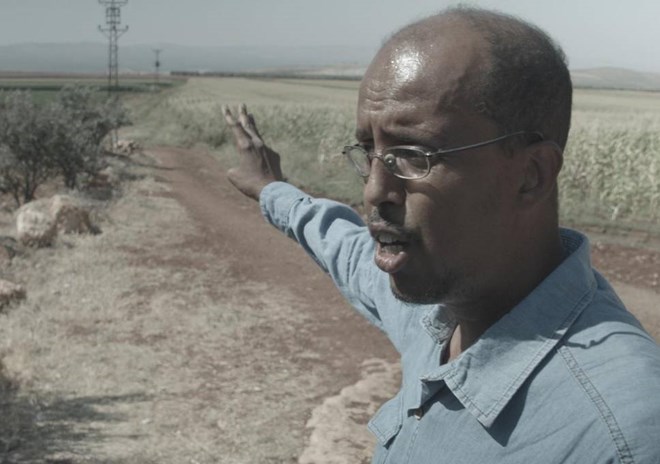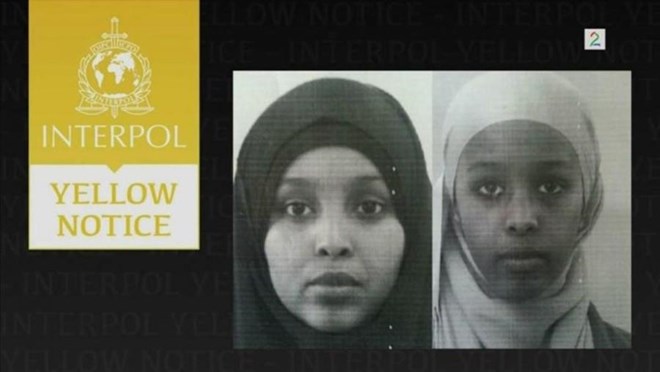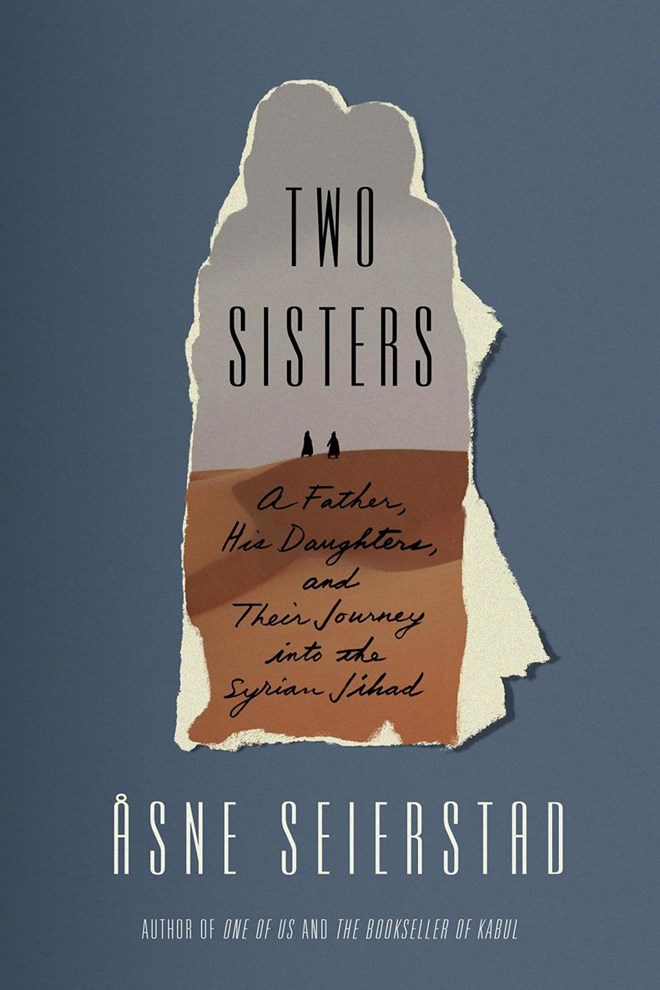
Thursday March 8, 2018
By David Sexton
Two Sisters is a grimly informative study of how not only societies but families too can be riven and sundered by unquestionable, fanatical belief, says David Sexton

Asne Seierstad made her name with a series of closely reported books set in conflict zones, including her 2002 bestseller, The Bookseller of Kabul, followed by One Hundred and One Days: A Baghdad Journal, and Angel of Grozny: Inside Chechnya. Then, in 2015, she turned to events in her own country with One of Us: The Story of Anders Breivik and the Massacre in Norway.
Her latest bestseller, Two Sisters, is the story of two Somali teenagers, Ayan, 19, and Leila, 16, who, in October 2013, having become radicalised in Oslo, secretly left the family home and made their way to Syria. Their father, Sadiq Juma, followed them three days later, first to Turkey and then into Syria, to try to bring them home. With the help of local fixers he made contact with them but they told him they had not been kidnapped, they had planned it for a year and had done it “100 per cent for Allah’s sake”. They were with Daesh — and Ayan was already married to a Norwegian Eritrean jihadist.
After appealing to a local Islamic court, Sadiq was allowed to meet Ayan again for just four minutes, and then, lured by the promise of another meeting with his daughters, kidnapped by IS, accused of being a spy and beaten and tortured for 13 days in a prison adapted from a sewage plant. Only after he had convinced a sharia prosecutor that he was simply a father looking for his daughters did he somehow manage to escape.
Sadiq returned to his broken family in Oslo, still trying from there to rescue the girls, who did not want to be rescued. Meanwhile, IS set about the creation of Islamic State in Syria and Iraq, making Raqqa the capital, taking Tikrit and Mosul, and proclaiming the caliphate in June 2014, soon following up with the release of the horrific beheading videos of Western hostages, starting with James Foley.
Both Ayan and Leila, now herself married to a British Somali jihadist, remained in Raqqa, both having baby daughters. Seierstad’s book, published in Norwegian in 2016, leaves them there. Although the city fell last autumn, they are believed still to be in Syria somewhere.

Seierstad announces her story as a “documentary account”, based always on testimony, whether in the form of extensive interviews with the girls’ family and friends, written records or retrieved texts and emails. She has shaped this enormous amount of material into a quasi-novelistic form, taking the liberty of reconstructing not just conversations but thoughts.
Beginning with the night the sisters ran off and Sadiq’s initial pursuit of them, it then loops back to look at the girls’ upbringing in Norway before returning to take on the story of Sadiq’s misadventures in Syria, all this part evidently based mainly on Sadiq’s own account. Thereafter the book lacks propulsion, since the basic situation alters little, and Seierstad has to rely heavily on the intermittent text and email exchanges the sisters had with their family, including their sceptical brother Ismael, back in Oslo.
Seierstad claims impartiality. “I offer no explanation, neither of what attracted them to Islamic radicalism nor what propelled them out of Norway. I relate my findings. It is up to each reader to draw his or her own conclusions.”
Nevertheless, a short final section, boldly taking “hell is other people” as its epigraph, offers a summary of what the girls sought, and closes with an appalled guess at what the lives of their baby girls will be in the aftermath of the caliphate. “They will discover that hell is here. Hell is us. If they survive.”
Despite attempts to contact them, the sisters did not participate in the book. “Is it ethically defensible to focus on the lives of two girls when they have not granted their consent?” Seierstad asks. “My answer is yes. The entire world is trying to understand the reasons for radicalisation among Muslim youth.”

Her book gives as detailed an explanation as we’ve yet had. It makes it all too clear how helpless to argue against extreme Islamism other believers can be — since the extremists’ appeal is always to the Koran and to Allah, appeals which other believers cannot simply refuse or deny. The sisters’ parents were initially delighted by their strict observance. “It was gratifying that they did not melt too much into Norwegian ways.” Even after they have disappeared into Syria, their mother believes “they just needed to be led back into the path of true Islam”.
Their brother Ismael, meanwhile, lost his faith entirely. He told his fanatical sisters: “I believe in Allah about as much as I believe in the spaghetti monster.” His older sister, Ayan, who believed the caliphate would soon take over the entire world, broke off contact with him first; his younger sister, Leila, followed, after he had told her IS would be defeated.
Two Sisters is a grimly informative study of how not only societies but families too can be riven and sundered by unquestionable, fanatical belief.